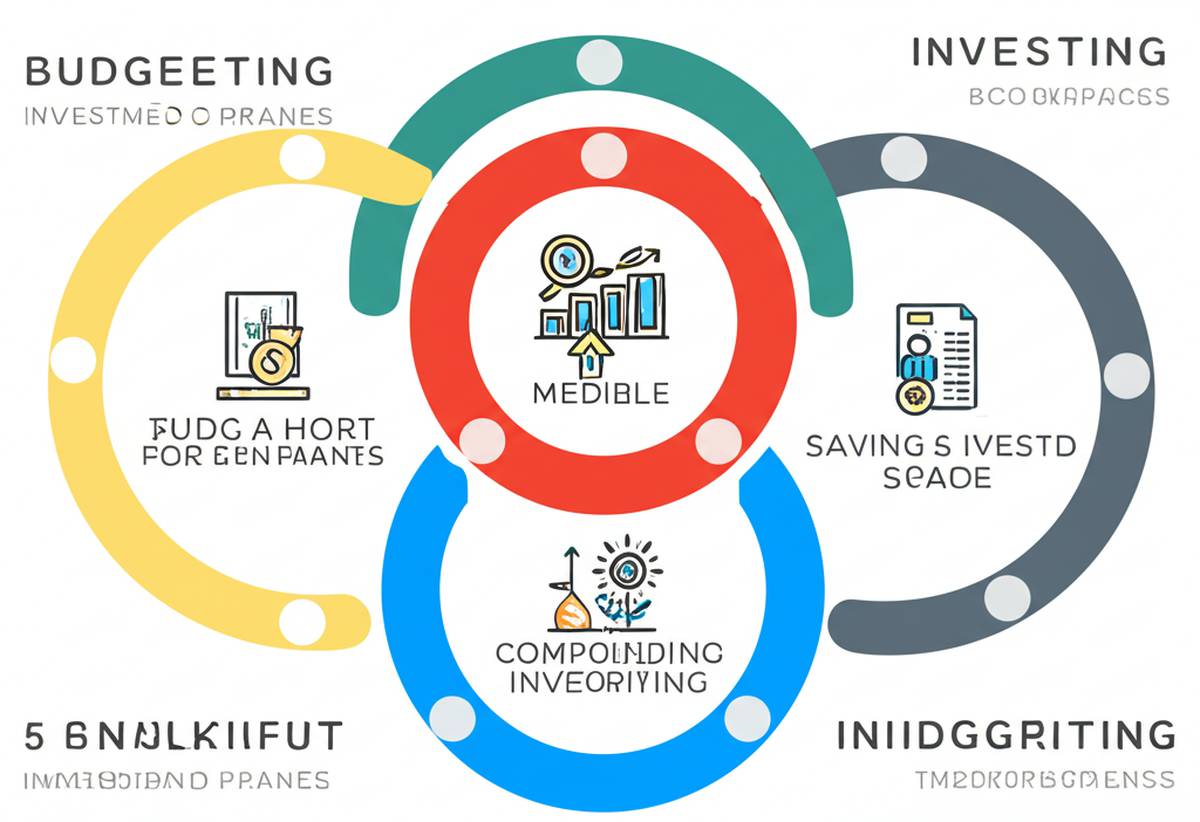Mastering the Principles of Budgeting, Saving, and Investing
Embarking on your financial journey can feel overwhelming, but understanding the principles of budgeting, saving, and investing unlocks pathways to lasting wealth and freedom. Whether you’re starting fresh or refining your approach, this guide will help you build confidence and clarity to achieve your financial goals.
Why the Principles of Budgeting, Saving, and Investing Matter
At its core, financial success comes from managing money wisely over time. Many struggle not because they lack income but because they haven’t mastered these foundational principles:
- Budgeting: Knowing where every dollar goes lets you control your finances instead of letting them control you.
- Saving: Building a safety net ensures you’re prepared for life’s uncertainties and ready for opportunities.
- Investing: Growing your money intelligently allows you to build wealth and fight inflation over the long term.
This trio forms the backbone of a stable financial life. To explore beginner-friendly strategies and mindset shifts, check out our detailed money mindset resources.
Understanding Budgeting: Your Financial Blueprint
Budgeting is more than tracking expenses. It’s about planning your money according to your values and goals. Here are key steps to effective budgeting:
- Track Your Income and Expenses: Start by understanding exactly how much money is coming in and going out. Apps, spreadsheets, or a notepad work well for this.
- Set Clear Spending Categories: Divide expenses into needs, wants, and savings goals.
- Assign Realistic Limits: Allocate funds to each category keeping your priorities in mind, but be flexible to adjust as life changes.
- Review Regularly: Monthly check-ins help keep you on track and highlight opportunities to improve.
Creating a personalized budget links closely with wealth building. By controlling spending, you free up resources for saving and investing.
The Art of Saving: Building Your Financial Cushion
Saving isn’t just about setting money aside—it’s about creating security and future options. Here are effective saving principles:
- Pay Yourself First: Treat savings like a recurring bill to ensure consistency.
- Build an Emergency Fund: Aim to cover 3-6 months of living expenses for unexpected challenges.
- Automate Savings: Use automatic transfers to remove decision fatigue and stay disciplined.
- Set Specific Goals: Saving for travel, education, or homeownership motivates and clarifies effort.
Utilize tools and tips from our Start Here page to set up your saving plans efficiently and confidently.
Investing Wisely: Growing Your Wealth Over Time
Once your budget and savings are in place, investing can boost your financial growth. Effective investing relies on these principles:
- Understand Your Risk Tolerance: Know your comfort level to choose investments that suit your personality and timeline.
- Diversify: Spreading investments across stocks, bonds, and assets reduces risk.
- Focus on Long-Term Growth: Avoid chasing quick wins; consistent, patient investing wins over time.
- Educate Yourself: Study basics from trusted sources like Investopedia’s investing guide to make informed decisions.
For practical guides on earning through online channels, explore our Digital Income section. We also recommend leveraging AI Automation to help manage your investments and finances efficiently.

Integrating Budgeting, Saving, and Investing for Financial Freedom
Each principle complements the others, forming a strong financial foundation. Here’s how to integrate them effectively:
- Use your budget to identify funds to allocate toward saving and investing.
- Set incremental saving targets to build capital for investments.
- Adjust your budget as investments grow or financial goals evolve.
- Continuously improve your life design to align spending with meaningful goals.
Remember, success comes with consistency and learning. Celebrate small wins and keep moving forward.
Your Next Steps
Ready to take control of your finances? Join the Billionmode community today by subscribing to our newsletter for weekly tips, expert interviews, and actionable advice. Transform your understanding of the principles of budgeting, saving, and investing into a rewarding habit that paves the way to freedom and impact.
Frequently Asked Questions
What is the first step to budgeting effectively?
Start by tracking all your income and expenses for at least a month. This gives you insight into spending habits, which is essential to creating a realistic budget.
How much should I save each month?
A common recommendation is to save at least 20% of your income, but this can vary. Paying yourself first and saving consistently, even small amounts, builds habits and progress.
Is investing risky for beginners?
All investments carry some risk, but beginners can minimize it by diversifying and focusing on long-term goals. Starting with education and small amounts helps build comfort and confidence.



